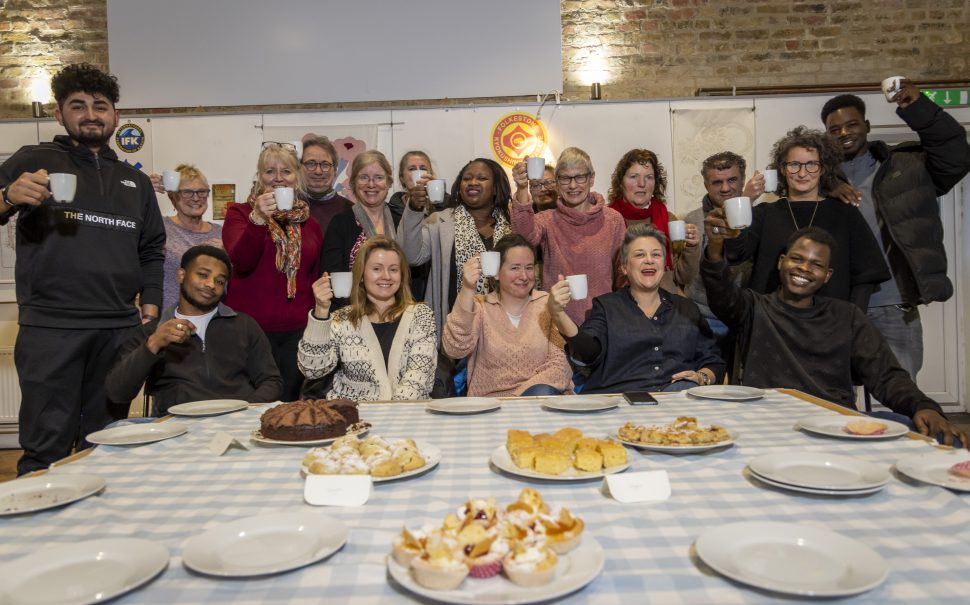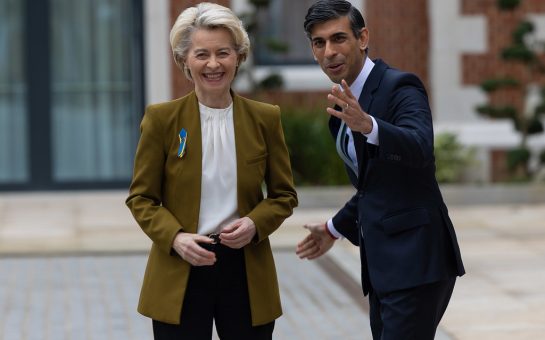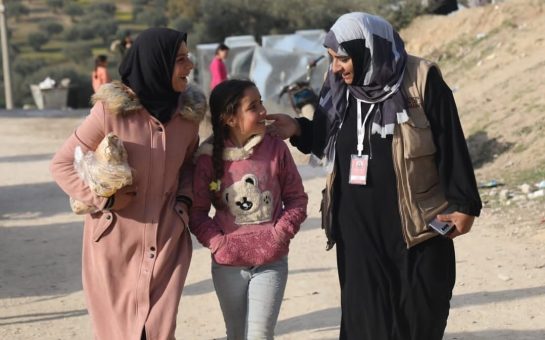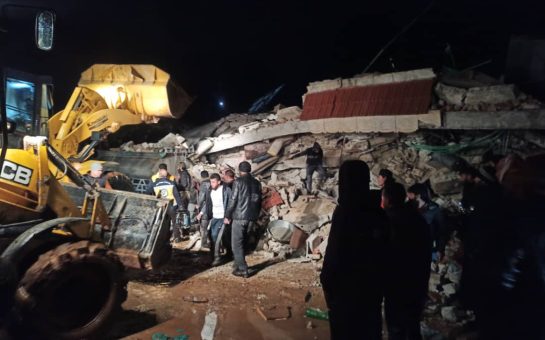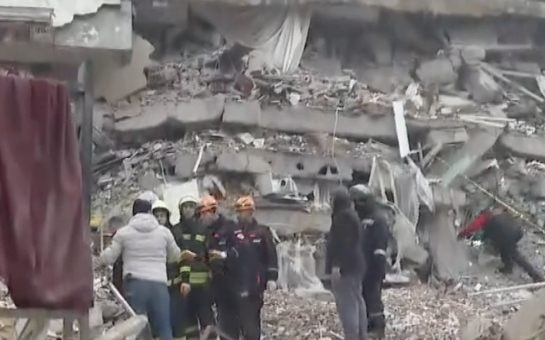When the Syrian civil war first began in 2011, Ghazala had to make a choice. To stay or to attempt to flee.
She, her husband and their baby daughter decided to stay. They remained in the Kurdish-majority neighbourhood of Sheikh Maqsood, in Aleppo, until the conflict worsened and they were forced to leave. Their end goal wasn’t the UK but that is where, 12 years later, they are now.
“They say in English, ‘Easier said than done’, don’t they?” Ghazala said.
She was calling from her flat in Bermondsey, London, excited for the upcoming Ramadan. In 2021 she resettled via the UK’s community sponsorship scheme – a lesser-known route of resettlement for refugees which allows charity, faith and other groups to ‘sponsor’ a refugee in a similar way to the Homes for Ukraine scheme.
“It wasn’t easy to come to the UK,” she said. “A lot of things happened. We’ve been through many awful things.”
The first thing the Syrian conflict brought to Ghazala’s neighbourhood was a drought of employment. There were no jobs, and her husband had no choice but to travel to Lebanon alone to find work. Once he secured a job, he told Ghazala, she and her young daughter would join him.
The conflict was escalating, and Ghazala realised the danger she was in. “I was staying with his parents when the war really knocked on our door, if you see what I mean,” she said. “It was in our neighbourhood.”
At that point, she had to flee. She and her family, reunited with her husband, stayed in a classroom in an old schoolhouse in the Afrin countryside before making the perilous journey to Lebanon.
“The journey to Lebanon wasn’t the last chapter of our life, it was the beginning,” Ghazala said.
“It was the beginning of an eight-year chapter. Eight years of hardship. Eight years of suffering.”
The memory of life in Lebanon was emotional for the now mother-of-two.
“I don’t know where to begin.”
Between 2011 and 2015 there was a huge influx of Syrian refugees fleeing to Lebanon. Currently, there are 810,000 registered in the country but the cracks were already beginning to show 13 years ago.
For eight years, the family were living in a humid, mouldy, tiny room in a shared house with several other families. In that time, Ghazala had her second child and was volunteering in a church and with Lebanon charity Caritas.
It was this work that gave her the opportunity she was reaching for. The opportunity to get to the UK.
Ghazala had noticed people from foreign countries visiting the church and listening to the stories of the refugees there. Some people were being offered resettlement in western countries.
The mother-of-two was hopeful.
She said: “I was telling myself, ‘Why not me? Why not my family? Why wouldn’t I have that chance, the same chance other people have?’”
Ghazala approached the people, who she later learned were working for UNHCR – the United Nations High Commissioner for Refugees – and explained the situation. She was told it was not their choice who was selected, and it was the countries deciding how many families they would take.
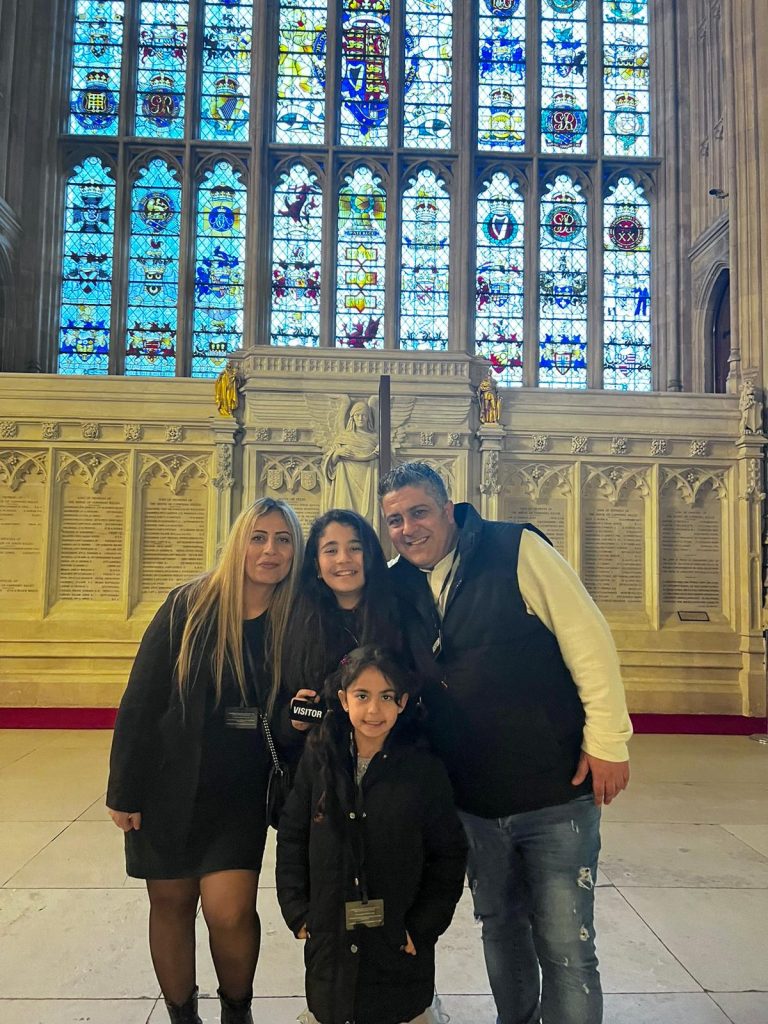
The manager for Caritas Lebanon – a charity aiding with health and social care; service to foreign refugees and emergency and crisis intervention – visited Ghazala’s room shortly after. She was shocked at the living conditions.
“She said, ‘How come you’re so different here? When you are outside you are different from when you are inside. You are a really elegant lady and if I didn’t come to your house, I wouldn’t know how you are living,’” she recalled.
To see Ghazala, whose enthusiasm for life and immense kindness was clear even through a zoom call, living in such squalid conditions with her young family was beyond imagination.
“In front of people I am always happy,” she said. “I try to be in the best shape possible but in reality, we were really struggling.”
Then a day she will never forget. September 4, 2019. Ghazala received a phone call telling her she was eligible for resettlement and would be a part of the UK’s community sponsorship scheme.
Through the programme, local groups can apply to sponsor a refugee family to come to the UK and help them rebuild their lives. The Covid-19 pandemic delayed the family’s flights but in June 2021, they finally arrived.
Bermondsey Welcomes Refugees, the group sponsoring the family, had already introduced themselves via video call before greeting them at the airport. Ghazala was overwhelmed by the kindness of the group and the size of the space the family would live in.
“They showed us the house,” she said. “That was a really unforgettable part. The children had bigger spaces than they did in Lebanon, they had their own beds, stories and toys. It was really lovely to see that.”
The sponsorship group, similar to those hosting Ukrainian refugees in the Homes for Ukraine scheme, had registered the children at school, registered for GPs, rented the flat and even furnished it before the family arrived. Regional events for families to enjoy are often set up to integrate communities, including Eid celebrations, and sponsors go above and beyond.
The community sponsorship scheme, for Ghazala’s family and the other sponsored families living nearby, has so far been a positive experience. But only 280 refugees were resettled via the scheme in the year ending September 2022, according to Home Office migration data.
The numbers are minimal and as one of the only routes to the UK classed as ‘safe and legal’ by the government it is some refugees’ only choice.
Bridget Chapman is communications coordinator for Reset UK, a charity formed to grow the community sponsorship movement.
She has seen first-hand how the scheme has helped refugee families rebuild their lives after living through unimaginable trauma.
“Ghazala and her wonderful family are an absolute joy to work with,” she said. “They are real ambassadors for the power of community sponsorship. Thanks to the support and the enormous work they have put in, they are now well established in their south London neighbourhood.
“Ghazala is an absolute dynamo, a woman of many skills who worked supporting refugees in Lebanon and she is an enormous asset to her community.”
For the community sponsorship scheme to continue working, local groups need to keep applying.
“I’d encourage anyone thinking about what they can do to support refugees to look at community sponsorship,” Bridget urged. “It’s a great model of welcome that benefits those arriving – and the community they come into – immensely.”
Ghazala and her family have founded a life here and the Syrian conflict seems so far away now, but never forgettable. As a woman, she will never forget the privilege of an education for her children.
Her youngest is now in Year Two of primary school and her oldest is preparing for the move to secondary. Both of them love maths and football.
“My youngest wants to be a doctor or a footballer,” Ghazala said proudly. It’s a life she could not have dreamed of back in Syria or Lebanon.
“There is no comparison to my life then and my life now. It was like a door which was closed, and they had opened the door to save me and my family, especially my two daughters. When I think of them going to school and learning, that means a lot to me.
“In Lebanon you couldn’t dream like that. Here, you can dream.”
Main image credit: Reset
